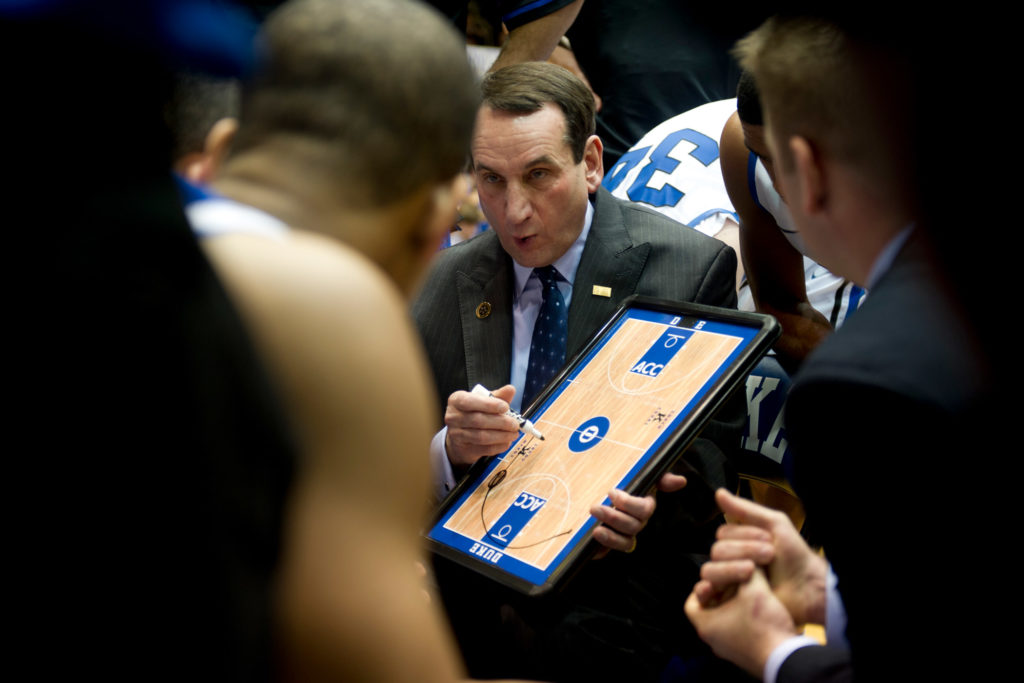What Athletes Really Want from their Coaches
Coaching is hard…let’s agree on that. There are no shortcuts. The best coaches have an amazing passion and hunger—one that is obvious and inspiring to their athletes. At the same time, I have no doubt that athletes can see right through us to perceive our true motives. They can tell—almost immediately—if we are self-centered and have selfish motives, or genuinely caring and oriented toward them.
Years ago, near the beginning of my coaching career, I was hungry to become immediately successful. I cornered a highly accomplished, veteran coach and asked him what he felt were the most important things about coaching. His answer surprised me: “Next time you are at a coaches clinic,” he advised, “watch who goes into which seminars.” He explained that tactical sessions focusing on a specific offense, defense, or technique were normally attended by younger coaches. Philosophy-themed seminars on topics like team-building, culture, and motivation were usually attended more by older, veteran coaches.
The next coaches clinic I attended, I looked to see if this veteran coach was right…and he was! I began to wonder why older coaches seemed more interested in things like team-building, culture, and motivation, and younger coaches seemed more interested in the technical and tactical—looking for that magic offense, defense, or drill that would make them win. The veteran coach’s whole point was that this pattern should be the other way around. This was some of the best, most valuable advice I received as a young coach. I’m convinced that this advice was key, and resulted in multiple championships over the years to come.
To be fully successful as a coach you definitely need to be well-versed in the technical and tactical aspects of your sport. Let’s not discount this part of coaching—it’s extremely important! Yet teams quickly revert to average when they are unmotivated or only have an average culture. We’ve all seen highly talented teams struggle, never really approaching their potential. Conversely, we’ve seen average talent excel, even over-achieve. We admire these underdog teams, declaring them “well-coached”.
In my experience, over-achieving, “well-coached” teams have a winning culture because they are full of athletes who are highly motivated, well-taught, resilient, and committed to a mission greater than themselves. More importantly, these are the things that athletes value most in their coaches…and want their coaches to model and emphasize.
Whether they say it or not, athletes expect their coaches to model and intentionally build great team culture. They want a culture they can feel proud of. Athletes will tell you that they want their coaches to be masters of creating a team culture based on trust, strong relationships, and an unwavering commitment to believing in their giftedness and potential as a person first, and only later as an athlete and team. They are less impressed by coaches who focus mostly on techniques for offense and defense and see athletes as little more than parts of a machine.
"It's not my job to make them know everything that I know. It's my job to make them better student-athletes…better people. Getting to the endpoint depends on where the individual is at. … The learning process is specific to the individual. I need to know the whole individual…and they need to know that I genuinely care about them as a person…not just as a student-athlete. Only then will we have a chance to achieve our list of goals.”
- Dave Preston, McMaster University, Head Men’s Volleyball Coach
Coach Preston says it well—wise words from a highly successful, veteran coach. The best coaches are people-centered. Championships are won by people, not just tactical mastery. When I finally and fully realized this idea, it was “life-changing” as a coach. I often say a short, simple prayer before practice or before a game that goes something like this, “Lord, help me to be what they need me to be.” It is calming and emotionally centering, and I believe it has helped me be a better coach, particularly at important moments. Coaches truly become great only when they learn to build great people.
Huddle Up!
Let us know what you think! Share your experiences, stories or thoughts that guide your coaching on our new Paragon Coaching Resources Facebook page. Like our page and track with upcoming articles. It’s always helpful for coaches to hear amazing stories. I look forward to hearing from you soon.

